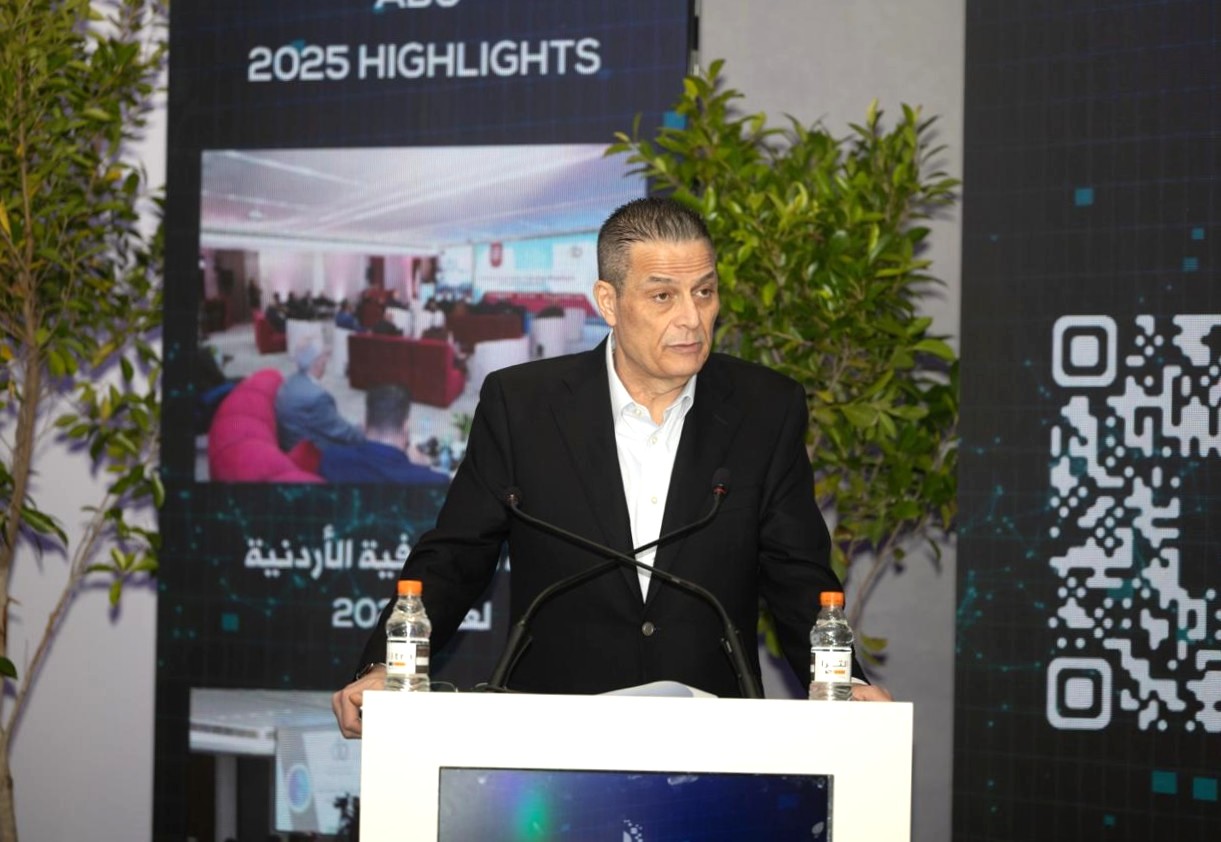
- Al-Salem: The committee aims to promote the concept of ‘green finance’ and raise banks’ awareness in this regard.
- Al-Mahrouq: The committee is the culmination of the efforts exerted by the Association in the field of green finance.
- Khalil: Green finance is one of the directions to achieve sustainability in economy and work.
ABJ officially announced on Wednesday the commencement of the work of the “Green Finance Committee” following its first meeting which was formed according to the decision of the Board of Directors. The committee includes in the following members:
- Mr. Hatem Hegazy/ Arab Bank.
- Ms. Jude Dahdal / Union Bank.
- Mr. Wael Al-Bayari / Jordan Capital Bank.
- Mr. Uday Qanbar / Jordan Islamic Bank.
- Mr. Faisal Al Shobaki / Jordan Commercial Bank.
- Miss Rima Al-Abli / Housing Bank for Trade and Finance.
- Mr. Fadi Khalil / Jordan Kuwait Bank.
Mr. Fadi Khalil, the representative of Jordan Kuwait Bank, was elected as Chairman of the Committee. The meeting tackled topics on the agenda, the objectives of the committee, its tasks, framework of work, the periodicity of its meetings and the committee members agreed on the general features of the committee’s work plan for the year 2023.
ABJ Chairman, Bassem Khalil Al-Salem, said that the Committee is the ninth permanent advisory committee formed in the Association in light of the growing global and local interest in green financing and in parallel with the direction of the Central Bank of Jordan to issue a strategy for green financing and environmental risk management.
Al-Salem indicated that this committee aims to promote the concept of green financing and increase banks’ awareness in this regard in a manner that enables banks to adapt their policies and directions towards green financing in accordance with international best practices and best experiences in this field.
He pointed to the interdependence of the committee’s work with the national goals of the green economy, especially the vision of economic modernization, which relied on sustainability as its main pillar and allocated a special engine for green environment including mechanisms for the transition to a green economy and the greening of economic sectors.
He pointed out that the committee’s future work will be linked to the green financing strategy prepared by the Central Bank which will guide the committee’s work and activities in the banking sector.
He stressed that the committee would play an advisory role to member banks in the field of green financing, and that it is fully prepared to receive the banks’ comments, suggestions and inquiries and will do everything in its power to assist banks in the transition towards green financing.
He stressed that the association would provide all support and assistance to the work of the committee and will provide it with all the requirements and needs to carry out its work.
For his part, Dr. Maher Al-Mahrouq, said that the committee will deal with all green financing related issues including participation in training of trainers (TOT) programs and workshops that the association will hold for committee members, workshops and training programs for bank employees and participation in various green finance events organized by ABJ.
He added that the committee will give its opinion on various topics related including any relevant local or international developments.
Al-Mahrouq indicated that the committee’s work will also include preparing and issuing policy papers, working papers, explanatory guides, recommendations, or any green financing related studies to help promote the concept of green financing and increase awareness of it.
Al-Mahrouq said that the Green Finance Committee was the culmination of the efforts made by ABJ in this field including the signing of a memorandum of understanding with the Project to Promote Green Activities in Industrial Facilities in Jordan (GAIN), which is being implemented with the support of GIZ and in cooperation with the Frankfurt School of Finance and Management (Frankfurt School).
He pointed out that the MoU aims to prepare an evaluation study on the reality and practices of green finance in Jordan through analyzing the supply and demand sides, building the capabilities of bank employees through specialized workshops, seminars and training programs, providing reference standards and specialized guides on the concepts of green finance and building appropriate credit policies for this type of financing and credit evaluation processes in addition to enabling banks to deal with the risks of green financing, thus, helping them to serve the growing market of green financing.
He added that this committee is considered one of the first specialized ones to be formed at the level of the financial sector.
In the same context, Al-Mahrouq spoke about the role of the banking sector in supporting trends towards a green and circular economy by providing specialized financing and providing financing for national projects.
He pointed out to the benefits of the transition to a green economy including raising the competitiveness of the productive sectors and reducing their costs in addition to raising production efficiency and reducing waste. The green economy will also contribute to creating job opportunities that meet Jordan’s needs.
In addition, the Chairman of the Committee, Fadi Khalil, stressed the importance of green financing globally and its role in achieving sustainability and implementing international sustainable development goals.
He pointed to the role of the committee in opening the doors of communication with international and national institutions concerned with green finance and networking between them and member banks as well as its role as a mediator in coordinating dialogue between parties affecting green finance, including the central bank and member banks, in addition to its mission to support the transition to green financing policies which contributes to enhancing financial sustainability.
He stressed that the committee’s key task is to work intensively to raise awareness in this regard, not only on the banking side, but on the demand side, i.e. for customers and citizens in general, as the lack of awareness of available financing programs and the lack of a clear classification and definition of green technology is considered one of the most important Funding challenges. He called for banks to evaluate environmental risks as a component of credit evaluation.
Khalil added that one of the committee’s tasks will be to act as a supportive body in implementing the central bank’s strategy for green financing, which has reached its final stages, and aims to green the financial sector and raise awareness in the banking sector.





